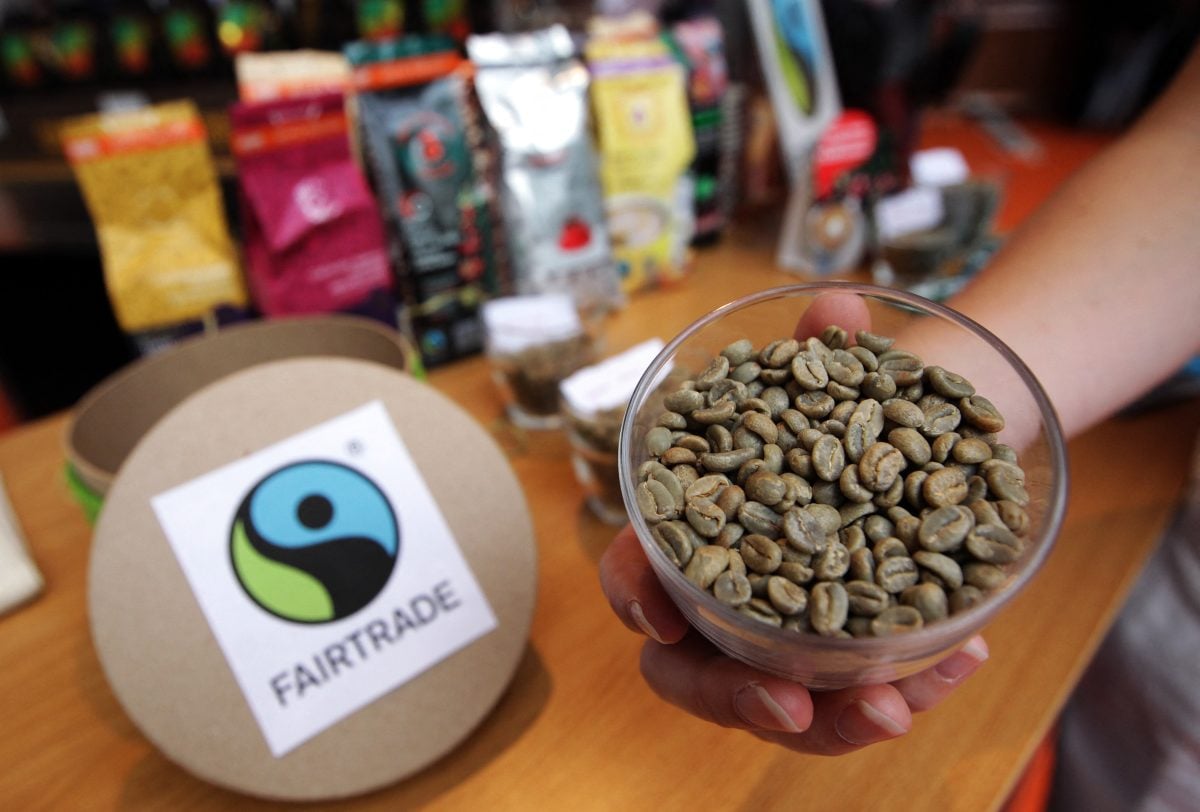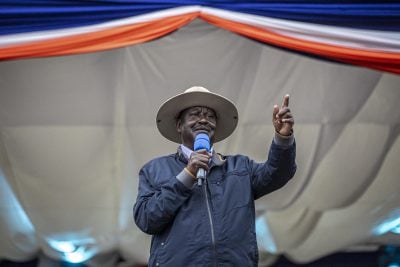Among those leading the charge to responsibly source food is Fairtrade, the global non-profit whose label offers a guarantee that a brand buys its ingredients from ethical producers who promote the welfare of farmers and protect the environment.
The Fairtrade standards are centred around improving working conditions, promoting environmentally sustainable farming practices and fostering ethical trade relations in the agrifood sector. Over 37,000 products in more than 140 countries bear the Fairtrade mark.
“Fairtrade is a voluntary certification scheme that works with farmers organised in cooperatives. If they are willing to adhere to the Fairtrade standards, they register and are trained on compliance. Once they are certified, we periodically bring in an independent auditor to ensure they keep to the standards,” says Isaac Tongola, executive director of Fairtrade Africa.
Guaranteed prices
Tongola tells African Business that cooperatives that comply with these standards gain access to global markets where they enjoy guaranteed prices for their certified produce.
“For farmers, being in Fairtrade is very important because it gives them access to high-end markets at Fairtrade’s guaranteed minimum price, which ensures they recover their costs and break even,” he says.
On top of the minimum price, buyers pay an additional “Fairtrade premium” which goes towards supporting farming communities. Farmers can invest the premium in community projects such as education, healthcare, clean water and access to training – though it is ultimately up to each cooperative to democratically decide how to spend the funds received. In 2023, producer organisations received €211.5m ($247m) in premiums, contributing to total premium earnings of over €1.5bn ($1.75bn) in the past decade.
Under the Fairtrade system, certified traders undergo regular audits to ascertain whether they are paying and receiving the minimum price and premium. The auditors check financial records, contracts and payment transactions to verify compliance and ensure that benefits get to the certified cooperatives.
Africa’s outsized role
Tongola notes that Africa plays an outsized role in the Fairtrade system, accounting for 74% of the total farmers and workers represented by participating cooperatives. “When we started in Africa in 2005 we had just a handful of farmer cooperatives. Now we’re working with 697 cooperatives representing over 1.4m small-scale farmers across Africa,” he declares.
Africa’s dominance in the Fairtrade network is no surprise, considering the continent is a leading producer of the seven primary products – coffee, cocoa, bananas, sugar, flowers, tea and cotton – that account for more than 90% of Fairtrade premiums.
Tongola says that one of Fairtrade’s current priorities in Africa is assisting farmers to navigate the evolving regulatory requirements in key export markets such as Europe. He offers the example of the European Union Deforestation Regulation (EUDR), a landmark law aimed at curbing global deforestation and forest degradation linked to EU consumption.
The expansion of agricultural land for the production of commodities is one of the primary drivers of deforestation globally. Under the regulation, commodities like coffee, cocoa and palm oil that are imported into the EU must be deforestation-free.
Traders who import these commodities and their derived products into the EU – or export from it – must be able to demonstrate that the products do not originate from recently deforested land. The law entered into force on 29 June 2023 but will become fully applicable from 30 December 2025 for large and medium companies and 30 June 2026 for micro and small enterprises.
“The EUDR requires geolocation data for all farms supplying EU-bound products. Fairtrade supports farmers with tools and training for farm mapping and data collection…
“We are working with technology partners in coffee and banana farms in West Africa to conduct geofencing. We are also providing satellite-based monitoring and digital tools to track land use, ensuring compliance with EUDR traceability rules,” Tongola says.
He stresses that efforts to help farmers keep up with these evolving regulatory requirements are vital to ensuring continued market access. “We have to help farmers prepare for stricter environmental, social and governance requirements in markets like Europe so that they can be sure of market access.”
Nevertheless, he contends that policymakers must remain mindful of the risks posed by overregulation, which can make compliance too burdensome for farmers. “A major challenge is the increasing regulatory demands in markets like Europe. Complying with some of these regulations can be highly demanding – farmers need ongoing training. Those who impose these regulations should understand the realities faced by farmers.”
More than just certification and training
For Tongola, Fairtrade’s impact in Africa extends far beyond its certification scheme and training programmes. He argues that the organisation’s extensive global network has also proved instrumental in linking farmers to strategic partners, including investors.
“We’ve engaged with partners from Belgium to help our farmers enhance the quality of their produce. They have committed to investing in laboratories, so we have this partnership ongoing,” he says.
Another key focus for Fairtrade, according to Tongola, is helping African farmers move higher up the value chain through local processing.
Africa’s agrifood sector is largely characterised by the export of raw materials, with limited local processing and value addition. To address this imbalance, Fairtrade is working to create stronger markets in the Global South that can fuel demand for value-added African exports.
“Apart from the south-north movement of products, Fairtrade also has initiatives where we work with other stakeholders such as governments to ensure that we improve the market situation in Africa and the Global South – so essentially helping farmers to add value to their products,” he says, adding: “The idea is to help producers develop new products, create new markets and also to be able to price appropriately for the local markets.”
Rise of the ethical consumer
Fairtrade’s long-term success ultimately hinges on the continued rise of the ethical consumer: someone who chooses products not just for price or quality, but also for the social and environmental values they represent.
According to a 2025 survey by consultancy GlobeScan, more than half of shoppers across 12 countries said they were willing to pay more for Fairtrade products, even amid rising living costs. These consumers are willing to part with more money for goods that guarantee fair wages, safe working conditions and sustainable farming practices.
Fairtrade’s reliance on the ethical consumer is both a strength and a vulnerability, in view of shifting trends.
Many corporations, particularly in the US, are quietly retreating from their environmental, social and governance (ESG) commitments and slashing related marketing budgets. Some worry that this could translate to slower growth in conscious consumption, posing a potential headwind for the likes of Fairtrade.
Critics have also raised concerns over Fairtrade’s reliance on cooperatives, arguing that issues like mismanagement, corruption and unequal distribution of premiums have been reported in the past in some countries.
According to a 2014 study by researchers from SOAS, University of London (formerly the School of Oriental and African Studies), some cooperatives have misappropriated members’ earnings. The study examined the impact of Fairtrade certification on smallholder farmers producing coffee, tea and flowers in Ethiopia and Uganda.
In Ethiopia, it found evidence of mismanagement and unequal distribution of premiums within some coffee cooperatives. Cooperative leaders or better-connected farmers often captured a disproportionate share of the premiums, leaving smaller farmers, including women, with limited benefits.
Want to continue reading? Subscribe today.
You've read all your free articles for this month! Subscribe now to enjoy full access to our content.
Digital Monthly
£8.00 / month
Receive full unlimited access to our articles, opinions, podcasts and more.
Digital Yearly
£70.00 / year
Our best value offer - save £26 and gain access to all of our digital content for an entire year!

 Sign in with Google
Sign in with Google 



